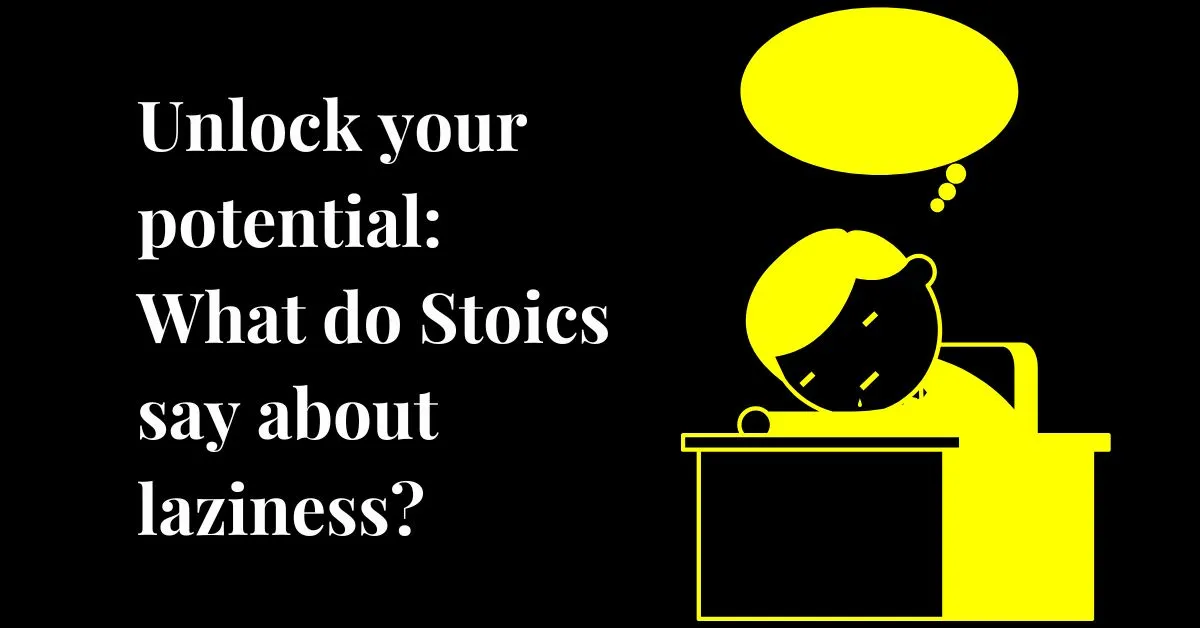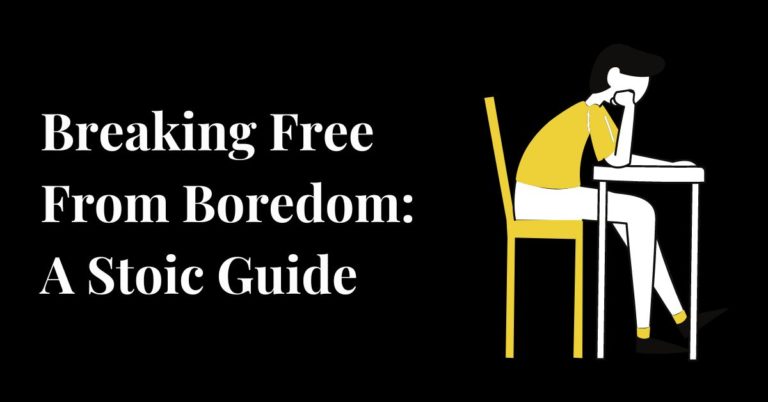Unlock your potential: What do Stoics say about laziness?
I’ll do it later.
For a long time, that was my favourite phrase to use. Whether it be taking out the trash or finishing up a task at work, we’ve all been lazy at some point in our lives. But what do the ancient Stoics say about laziness? In this blog post, we’ll explore 3 key strategies to overcome laziness:
- Shifting our mindset towards action
- Implementing self discipline
- Embracing discomfort and challenges
Are you curious to see how you can apply Stoicism and become more proactive in your life, then keep reading!
Table of Contents
Stoicism and laziness
First of all, the Stoics viewed laziness as a negative character trait.
It was believed that that it was a form of cowardice and inaction. This directly contracted the virtues preached by Stoic philosophers – which emphasised using our time wisely and pursuing virtuous actions.
So, how can we kick ourselves into action and stop being lazy?
Stoic strategies to overcome laziness
Mindset shift towards action
The Stoics believed that our thoughts and actions are intertwined.
To overcome laziness, it’s important to undergo a radical shift in our mindset – taking a proactive approach and focusing on taking action.
What action should you take? That depends on you. Everyone’s virtues are different and only through self reflection can you determine the necessary steps needed for your life.
But the first step is deciding that action needs to be taken. Don’t worry about having it all figured out in your head before taking the first step. Remember we should always strive for progress not perfection.
The power of self-discipline
Once you’ve decided to take that first step, then you need to build self-discipline.
We all know that life isn’t fair.
There will always be struggles along the way. Stoicism teaches us that when we face these obstacles, we need to be emotionally intelligent – remain indifferent to external events and instead focus on things that we can control
Embracing discomfort and challenges
Along with building our emotional intelligent we need to be able to come to terms with the uncertainty of life.
“The whole future lies in uncertainty: live immediately.” – Seneca
Laziness often stems from a fear of discomfort or fear of the unknown. By embracing life’s uncertainty, we can develop resilience and inner strength, which is extremely valuable in helping us pursue our goals.
Conclusion
In conclusion, Stoicism views laziness as a barrier to our personal growth.
To overcome this, it’s important to shift our mindset towards action, build self-discipline, and embrace discomfort and challenges. By embracing these principles, we can become more proactive, emotionally intelligent, and resilient in our lives.
So, take that first step, strive for progress, and enjoy the journey towards a better and more fulfilling life.






